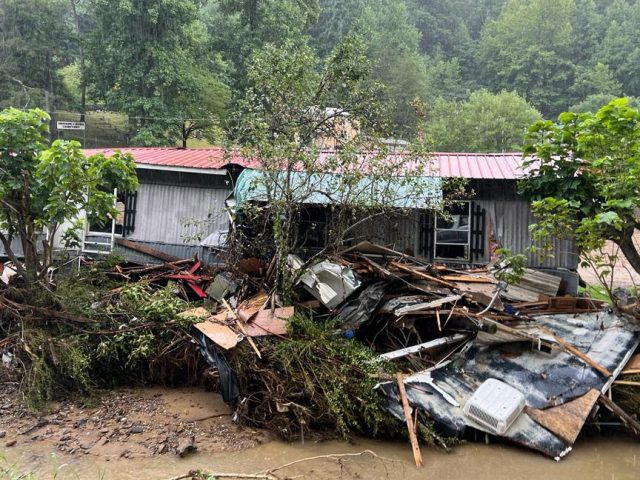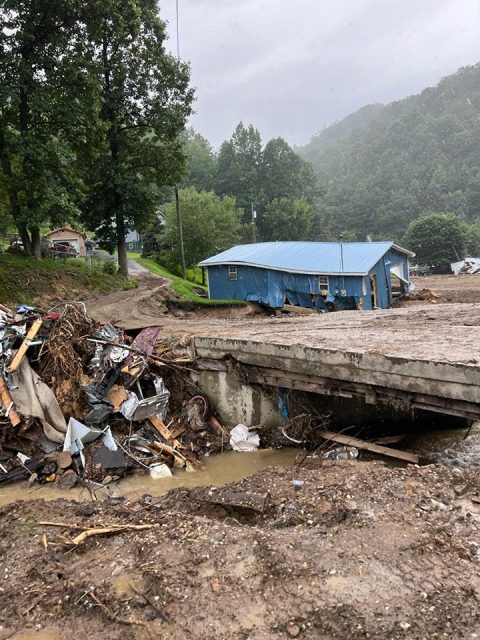No escape
There was no warning, and no time to escape. When extreme rainfall caused devastating flooding in eastern Kentucky less than a month ago, residents lost their lives, loved ones, homes, shelters, schools, electricity, and access to food and clean drinking water. Since then, survivors have utilized springs, swimming pools, and floodwater for their water needs.
The death toll in this Appalachia region has risen to 37, and hundreds of people are still missing.

LifeStraw, a public health B Corporation, has been converting micro biologically-contaminated water into safe drinking water since 2005 and has implemented an initiative to help victims in these communities. The Safe Water Fund for Kentucky allows people and businesses to donate money to offset the cost of manufacturing and distributing LifeStraw water filters to people in need. The initiative is assisted by the USDA and community grassroots efforts to ship thousands of household and community-size filters to affected areas. The company immediately shipped 3,700 individual, household, and high-volume purifiers at the onslaught of the disaster, and in August, several LIfeStraw team members traveled to eastern Kentucky for even more relief efforts.
Hands-on helping
LifeStraw CEO Alison Hill worked across Perry, Breathitt, Knott, and Floyd counties, the hardest areas hit, in a partnership with local volunteers that donated water filters and purifiers and helped families clean their homes and shelters of mud and debris. Hill said the challenge is an emotional one and a reminder of the core values of the LifeStraw team. “It’s more than just donating and sending products. It’s about working side by side with the community to show up for families, asking what they need, listening to what is critical to them, and doing what we can to make it happen.”


The task has morphed into a grassroots effort to create warehousing and distribution sites. Volunteers are in need of coolers, tents, solar lighting, children’s shoes, sleeping bags, camp stoves, underclothes, female hygiene products, diapers, and formula.
The right thing to do
Hill is asking outdoor businesses to participate, saying, “It’s not just the right thing to do, it’s our responsibility as corporate citizens and as humans to go outside of our comfort zones, lean in, and roll up our sleeves to be part of a solution.”
The company says 100 percent of donated funds will go toward the cost of filter manufacturing and distribution.
LifeStraw products are used in more than 64 countries by schools, clinics, outdoor enthusiasts, adventure travelers, and households and are regularly deployed to support communities impacted by emergencies or natural disasters requiring potable water.
Our No Compromise Clause: We carefully screen all contributors to ensure they are independent and impartial. We never have and never will accept advertorial, and we do not allow advertising to influence our product or destination reviews.


